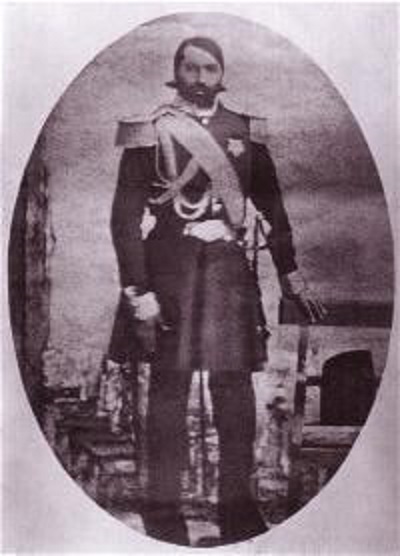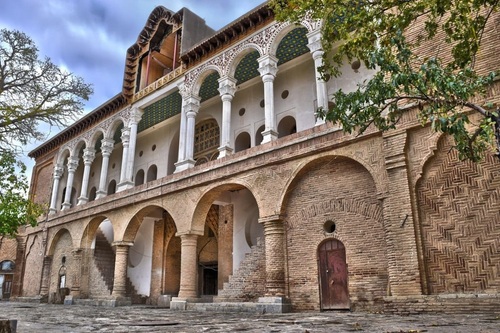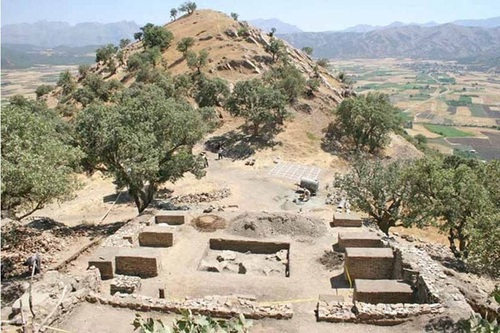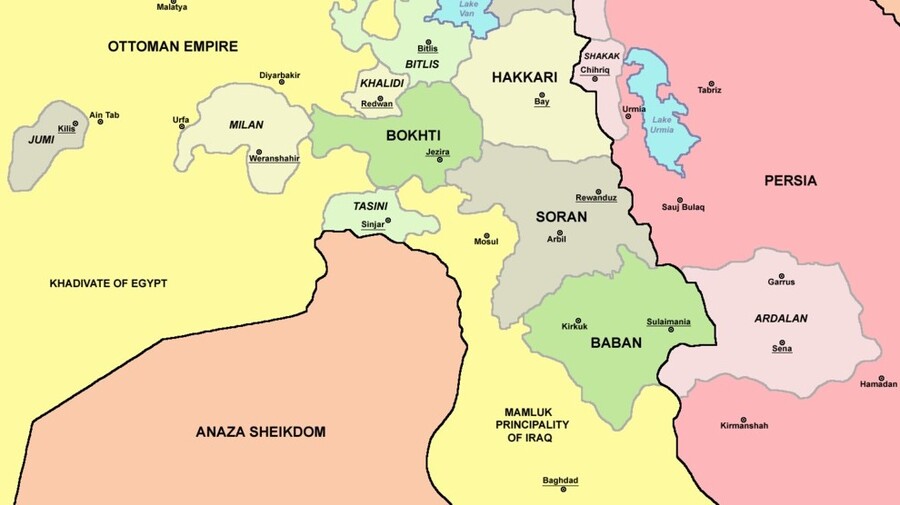At the beginning of the new Kurdish history, the Ardalan Empire was considered the first Kurdish sovereign. According to many historical sources, the rule of the Ardalan Empire dates back to between 1169 and 1862 AD. According to this history, in both medieval and modern history, the Ardalan Empire was the oldest Kurdish sovereignty. During this period, about 58 members of the Ardalan family came to power and played their historic role.
There are different opinions about the date of the appearance of the Ardalan dynasty and the founder of the emirate (Baba Ardalan). Ma'mun Bag son of Bigabag (1496-1538), the eleventh emir of the Ardalan Empire, indicated that Baba Ardalan was not the founder of the empire, but that several members of his family had come to power before him. In the meantime, Baba Ardala was the one who brought his family to a local political authority in the late Middle Ages.
In this regard, Mohammad Amin Zaki Beg called Baba Ardalan the founder of the Ardalan government. He said that after the reign of Genghis Khan, he took over the areas of Sharazur and Ardalan and became subject to Genghis Khan, and on his orders remained as the ruler of the areas under his rule.

Amanullah Khan Ardalan
On the other hand, if we check the history of this family and the Ardalan Empire to a distant or closer period, it does not change the fact that there was a figure called Baba Ardalan, who became his and his family's famous in history. He also did not exist during the Sassanid and later Abbasid periods, because the original sources do not mention the existence of a person named Baba Ardalan. Therefore, the figure called Baba Ardalan was actually named "Khasrow Khan" and around 1169 ruled the regions of Sharazur and Hawraman. Obviously, what helped him to emerge to rule the regions of Hawraman and Sharazur was the annexation of these regions to the Ayubid state in Egypt and Syria between 1146 to 1190, ruled by Sultan Salahaddin Ayubi.
Therefore, during the Ayubid rule in these areas, the opportunity arose for Baba Ardalan and his family to rule a semi-independent state from the Ayubid state and its affiliates. During this reign, he built Zalm Castle in Hawraman and made it the capital of his rule. Until his death in 1208, he took control of Sharazur and ruled the Ardalan Empire.
He was succeeded by his son Klol, who ruled between 1208 to 1231. During his reign, the empire extended its power to Saqqez, Zarin Kamar, Garus, Siakew, and even Erbil Castle.

Khosrow mansion - The place of the rule of Khasraw Khan Ardalan
During his reign, the Mongol invasion reached Kurdistan and the Ardalan region. This emir adopted his own policy in order to protect the territory under his rule from plunder and destruction. That is why he approached the Mongol ruler and gained their confidence not to attack the areas under his rule.
When Klol died, his son Khedr succeeded him and ruled between 1231 to 1264. He is also known as one of the most generous and capable emirs and is said to have enjoyed peace and security in the region during his reign.
After Khedr, his son Elias succeeded him and ruled between 1264 to 1310. Like his father, he was a generous and just man.
After Elias, he was succeeded by his son Khedr II (1310-1345). During his reign, he took control of Koya, Harir, Erbil, Rwanduz, and Amedi in the Southern part of Kurdistan.
Halo Khan was another capable emir of this empire who made Zalmi Castle in Hawraman the capital of his rule. He was succeeded by his son Khan Ahmad Khan, who moved his capital to Sina (Sanandaj) in 1634.

Remains of Halo Khan Castle
As a result of the Treaty of Zahaw (1639), the power of this empire declined.
The castles of Hassan Awa, Plakan, and Marivan Castle are among the masterpieces of the princes of the Ardalan Empire.
Resources:
A Piece of Kurdish History, Dr. Keywan Azad Anwar, Sulaimani, 2021
Kurdish Emirates of the East, Nawshirwan Mustafa Amin, Sulaimani, 2006








